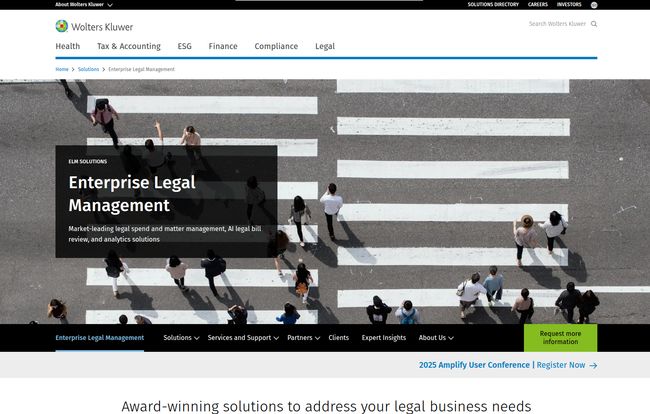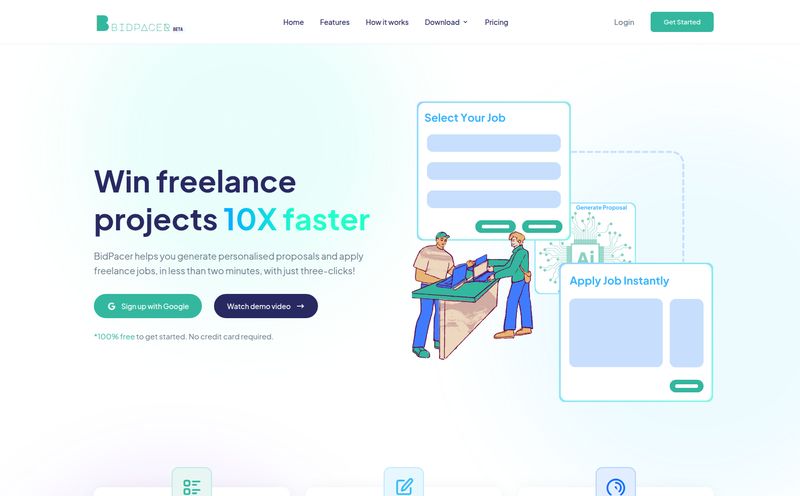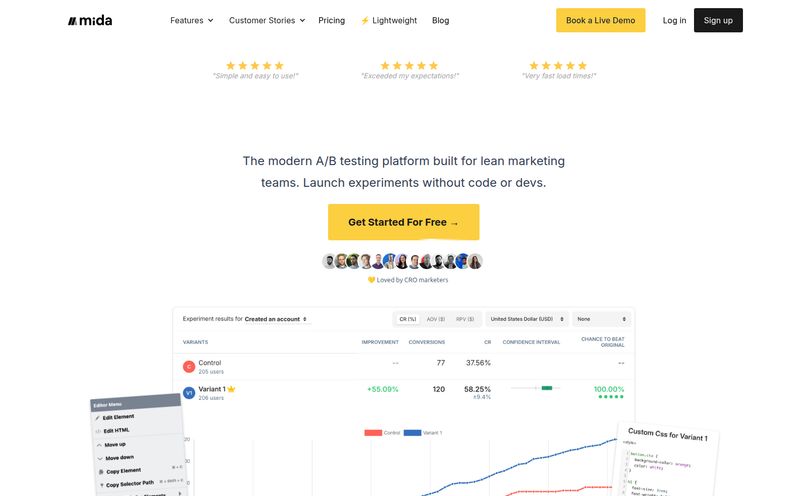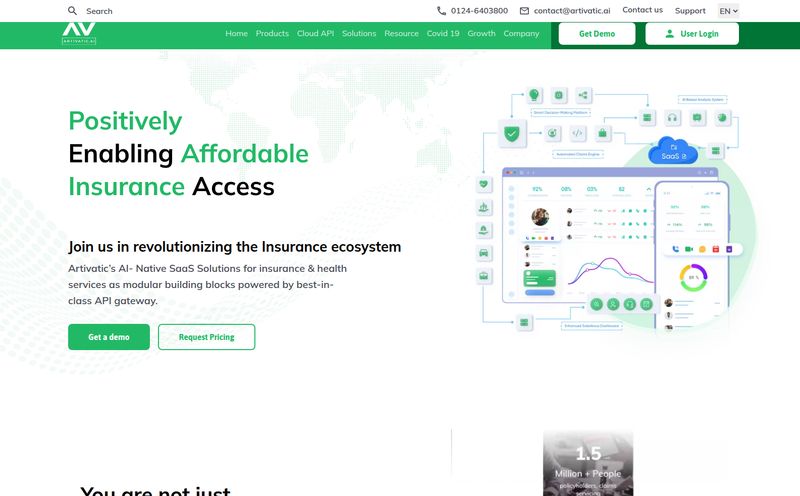If you’ve ever been anywhere near a corporate legal department, you know the scene. Stacks of invoices from outside counsel that look more like phone books. Endless spreadsheets trying to track matter progress. And the CFO breathing down your neck, asking why the legal budget looks like a lottery winner’s shopping list. It’s… a lot.
For years, the legal world seemed immune to the tech revolution that swept through every other department. Sales has Salesforce, Marketing has HubSpot, but Legal? Legal had Microsoft Excel and a stiff upper lip. But those days are, thankfully, fading fast. And a big reason for that is the rise of Enterprise Legal Management, or ELM, platforms. Today, I’m looking at one of the biggest names in the game: Wolters Kluwer ELM Solutions.
As someone who lives and breathes SEO, traffic, and analytics, the idea of bringing data-driven decisions to the legal field just makes sense. So, let’s pull back the curtain and see if this platform is the real deal or just another piece of complicated corporate software.
So, What's the Big Deal with ELM Solutions?
First off, this isn't some plucky startup. ELM Solutions is a division of Wolters Kluwer, a global giant that’s been around since… well, a very long time. This gives them a certain gravitas. They're not going to disappear overnight. They offer a whole suite of software and services designed to bring order to the chaos of corporate legal and claims departments. Think of it as a central command center for everything from managing cases (or 'matters') to scrutinizing every single line item on an invoice from a law firm.
Their whole pitch is about transforming the legal department from a cost center into a more efficient, predictable business unit. And lets be honest, in this economy, showing your value and controlling costs is the name of the game for everyone.
A Peek Under the Hood at Their Core Products
Wolters Kluwer doesn’t just offer one thing; it's more like a buffet of interconnected solutions. You can pick and choose, but they're designed to work together. Here are the headliners I gathered from their site.
Passport®: The Central Nervous System
This seems to be their flagship product. If ELM Solutions is the command center, Passport® is the main console. It’s the all-in-one platform for matter management, spend management, and everything in between. From what I can tell, this is for organizations that want to bring their entire legal world into one unified system. It's the big, powerful engine that drives everything else.
TyMetrix® 360°: For Taming the Billing Beast
This one is more focused. It's a SaaS (Software-as-a-Service) tool for e-billing and matter management. The main goal here is to streamline how a company handles invoices from its outside law firms. No more paper, no more questionable billing entries slipping through the cracks. It digitizes and organizes the entire process, which is a massive time-saver and, more importantly, a money-saver.
LegalVIEW® BillAnalyzer: The AI-Powered Auditor
Now this is where things get interesting for a tech nerd like me. LegalVIEW® BillAnalyzer uses AI to automatically review legal bills. It’s trained on what they claim is the world's largest repository of legal spend data—over $200 billion worth. The AI flags non-compliant or questionable charges based on the company's specific billing guidelines. It’s like having a superhuman paralegal who can read thousands of invoices in minutes and never needs a coffee break. It doesn't replace human oversight, but it sure does augment it.

Visit ELM Solutions | Wolters Kluwer
LegalVIEW® Analytics: Making Data Your Superpower
This is the payoff for collecting all that data. The analytics tools allow a general counsel to see exactly where money is going, how different law firms are performing against each other, and how their department's spending compares to industry benchmarks. This is how you walk into a meeting with the CFO armed with charts and data, not just anecdotes. It's about making strategic decisions, like which firms give the best value, instead of just guessing.
Who is This Actually For?
It's pretty clear this isn't for the solo lawyer working out of their home office. Wolters Kluwer is targeting two main groups:
- Corporate Legal & Claims Departments: This is their sweet spot. We're talking about in-house legal teams at large national or global companies that work with dozens, if not hundreds, of outside law firms. They have complex cases, massive budgets, and a real need for operational efficiency.
- Law Firms: They also offer solutions for law firms. This makes sense. To make the whole ecosystem work, you need the firms to be on board. They provide tools that help firms with things like onboarding with a new corporate client and analytics to better understand their own performance. It's a smart, two-sided approach.
The Good, The Bad, and The Realistic
No tool is perfect, and I always think it's important to look at things with a critical eye. From my research and experience with enterprise software, here's my breakdown.
The Upsides
The biggest pro is the sheer comprehensiveness of the platform. It's a one-stop-shop, backed by a huge, stable company. That's reassuring. The AI-powered bill review is a genuine game-changer, and their massive dataset for analytics is a pretty powerful moat against competitors. You can't just build a $200B+ database overnight. I have to say, the potential for real cost savings and data-driven insights is huge.
A Dose of Reality
Now, for the other side of the coin. Implementing a system like this is no small feat. It's a significant investment, not just in money but in time and resources. Integrating it with a company's existing financial and IT systems can be complex. You cant just flip a switch. There's also going to be a learning curve for the legal team, many of whom might be used to doing things the old-fashioned way. This is a major organizational change project, not just a software purchase.
What About the Price Tag?
If you're looking for a pricing page on their website, you can stop. You won't find one. And that's typical for this level of enterprise software. The cost is going to depend on a whole bunch of factors: the size of your company, which modules you need, the number of users, the complexity of the implementation.
The sales process is consultative. You'll have to get on a call, do a demo, and they'll put together a custom quote. My advice? Don't think of it as a 'cost'. Frame it as an 'investment'. The whole point of the platform is to deliver a return on that investment through cost savings and efficiency gains. You need to be prepared to build a business case for it.
My Final Take as a Tech Watcher
So, where do I land on Wolters Kluwer ELM Solutions? I think it's a formidable player in a space that's only going to become more important. The legal industry is finally, finally embracing technology and data, and platforms like this are leading the charge.
It's not for everyone. If you're a mid-sized business with a small legal team, this might be overkill. But for a Fortune 500 company juggling massive litigation and transactional work across the globe? A platform like this feels less like a luxury and more like a necessity. It’s a serious tool for serious legal operations. It represents a shift from reactive problem-solving to proactive, strategic management—and that’s a trend I can definitely get behind.
Frequently Asked Questions
What exactly is Enterprise Legal Management (ELM)?
Think of it as a business discipline and a category of software. It helps in-house legal departments manage their workload, budgets, and outside counsel like a structured business unit, focusing on efficiency, data, and cost control.
Is ELM Solutions only for gigantic corporations?
While their solutions are definitely geared towards larger organizations with complex legal needs, some of their products like TyMetrix 360 might be a fit for smaller, growing legal teams. The best way to know is to contact them for a discussion about your specific needs.
How does the AI in LegalVIEW® BillAnalyzer actually work?
It uses a combination of machine learning and natural language processing. It's trained on millions of real (anonymized) legal invoices to understand billing patterns. It then compares incoming invoices against your company's specific rules and flags any entries that seem out of place, duplicative, or against policy.
Can I integrate ELM Solutions with other software I use?
Yes, integration is a key part of the implementation process. These platforms are designed to connect with other enterprise systems like Accounts Payable (AP), HR, and document management systems to create a more unified workflow.
Why can't I find a price for their software online?
Enterprise software pricing is complex and tailored to each customer. The final price depends on factors like company size, the specific products chosen, user count, and the level of support and implementation services required. It requires a custom quote rather than a one-size-fits-all price.
Conclusion
Navigating the world of legal tech can feel like hacking through a jungle. Wolters Kluwer ELM Solutions stands out as a well-established guide with a powerful set of tools. For large organizations drowning in legal complexity and spend, it offers a credible path toward clarity and control. It’s a heavy-duty solution that requires a real commitment, but for the right company, the payoff in efficiency, savings, and strategic insight could be immense. It's proof that even the most traditional fields can be transformed when you follow the data.
Reference and Sources
- Wolters Kluwer ELM Solutions Official Website
- Gartner Peer Insights on Enterprise Legal Management Solutions



